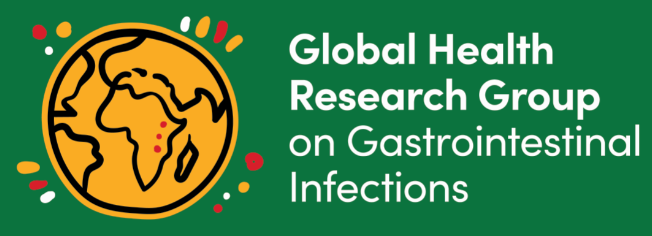Theme Leads, Co- Leads and Additional Staff.

Khuzwayo Jere - Theme Lead
Dr Khuzwayo C. Jere is a Medical Virology Lecturer at the University of Liverpool and Kamuzu University of Health Sciences. He heads the Virology Research Group at the Malawi-Liverpool Wellcome Trust Clinical Research Programme (MLW), is a co-founder of the African Enteric Viruses Genome Initiative (AEGVI) and saves as a core member of the Malawi National Immunization Technical Advisory Group (MAITAG). His current work focuses on understanding the evolution of viral pathogens, elucidation of human immune responses induced through vaccination and natural infection of enteric viruses, evaluation of new vaccine candidates through clinical trials, and assessment of vaccine effectiveness of enteric vaccines in children living in low-income settings. His work has been extensively published in various peer-reviewed international journals (ORCID iD:0000-0003-3376-8529). He is a Co-applicant of the Global Health Research Group in Gastroenteritis Infection programme and is leading Theme 1 (Burden of disease).

Sam Kariuki - Kenya Co-Lead
Sam Kariuki is the Director, Research and Development, and Acting Director General, Kenya Medical Research Institute (KEMRI) (2018-2022). He is Fellow, African Academy of Sciences and Honorary Faculty Wellcome Sanger Institute (https://www.sanger.ac.uk/people/honorary-faculty/). He is a visiting Professor of Tropical Microbiology, Nuffield Department of Medicine, University of Oxford, and the Ohio State University One-Health Initiative. He is also a member of the American Society for Microbiology and Section Editor, Journal of Medical Microbiology. In 2022, he received a Doctor of Science Honorary Degree from the LSTM in recognition of his contribution in research on Infectious Diseases and AMR in Kenya and the region.. Over the last 20 years he has researched and published on the epidemiology and genomics of AMR and genomic surveillance of key foodborne enteric pathogens endemic in Kenya and the region. He has published widely in peer-reviewed journals and 4 chapters in textbooks of Microbiology, majoring in Infectious diseases and AMR. For his work on the anthroponotic transmission of Salmonella Typhimurium invasive bloodstream infections in children less than 5 years of age and resulting in extremely high mortality rates in Kenya and the region (Kariuki et al. J Med Microbiol. 2006; 55(Pt 5):585-91), he won the Pfizer Prize (The Royal Society) for African Scientist of the Year Award, 2012. He is a member of the National Antimicrobial Stewardship Interagency Committee (NASIC) advising Ministry of Health on One Health approach in implementation of the National Action Plan to combat AMR. He is a member of the WHO Strategic and Technical Advisory Group for Antimicrobial Resistance (STAG-AMR).

Dan Hungerford - Theme Lead
Dan is an infectious disease epidemiologist with expertise in gastrointestinal infections and vaccine evaluations, in relation to health inequalities. During his career Dan has worked across academia, Public Health and the NHS. He currently holds a NIHR Post-doctoral Fellowship, and a Tenure Track Fellowship position within the NIHR Health Protection Research Unit in Gastrointestinal Infections at the University of Liverpool; where he leads the People and Places Theme.
His research on the use of "real world" data for vaccine evaluations and effectiveness studies, focusing on respiratory and diarrhoeal disease is funded by multiple externally funded grants (https://orcid.org/0000-0002-9770-0163). Dan’s NIHR Fellowship is multi-disciplinary, combining epidemiology, laboratory science and modelling to predict risk of rotavirus diarrhoea in vaccinated children. Alongside his fellowship, Dan led the field work for a household COVID-19 community cohort study, COVID-LIV and leads the European Rotavirus Surveillance Network (EuroRotaNet). He is a Co-applicant of the NIHR Global Health Research Group in Gastroenteritis Infection and is leading Theme 2 (Impact and cost-effectiveness).

Dr Phelgona Otieno - Kenya Co-Lead
Dr Phelgona Apondi Otieno is a Clinical Research Scientist based at the Centre for Clinical Research, Kenya Medical Research Institute (KEMRI). Her professional specialities are in the field of Paediatrics and Epidemiology. Her research experience spans several areas including: HIV disease progression, child nutrition, preterm birth interventions as well as a mix of explorations on multisectoral interventions to improve health outcomes in children. She has contributed in KEMRI’s Scientific Program of Sexual, Reproductive, Adolescent and Child Health Research and Infectious and Parasitic Diseases Program. At the institute she has also had several leadership positions including heading scientific programs and technical committees. Phelgona has been actively involved in collaborative research activities with several international institutions including University of Washington, University of California San Francisco, University of Texas Medical Branch, University of Boston, and University of Connecticut among others. Her local collaboration has included, University of Nairobi, Kenya Agricultural and Livestock Research Organization among others. In most of these collaborations, she has been the local lead Investigator. A medical doctor and research scientist who is very passionate about mentorship she has initiated several mentorship programs for medical doctors, medical student as well as other scientists, including initiating a community child health program for paediatric residents. She also serves as a reviewer for the Institutional Scientific and Ethical Review Body. Her research activities have involved both clinical trials, implementation science studies, observational studies as well as qualitative methods approaches. (Publications > 45)

James Kariuki Ngumo (KEMRI)
James Kariuki Ngumo is a senior research scientist and a certified knowledge manager. He has skills in data analytics and health informatics. Currently, he works for Kenya Medical Research Institute and has over 20 years work experience in conducting research in health systems strengthening; systematic reviews; knowledge management & knowledge translation; training and capacity building for human resource in health. In relation to EIDM, he engaged in generation and synthesizing of available evidence, advocating for demand and use of evidence by informed decision making at sub-national, national and regional levels. On request, he facilities in short term trainings in rapid reviews and scientific communication.
James Kariuki Ngumo is a senior research scientist and a certified knowledge manager. He has skills in data analytics and health informatics. Currently, he works for Kenya Medical Research Institute and has over 20 years work experience in conducting research in health systems strengthening; systematic reviews; knowledge management & knowledge translation; training and capacity building for human resource in health. In relation to EIDM, he engaged in generation and synthesizing of available evidence, advocating for demand and use of evidence by informed decision making at sub-national, national and regional levels. On request, he facilities in short term trainings in rapid reviews and scientific communication.

Jobiba Chinkhumba
Jobiba Chinkhumba PhD. Lecturer at Kamuzu University of Health Sciences (formally, College of Medicine). My post graduate training is in Health Economics with bias in healthcare systems and economic evaluations.
I am a researcher with a strong expertise in impact evaluation, economic evaluation of healthcare programs and health systems strengthening in low income countries. I have worked on various projects in health services research, human resources for health, health economics, Nutrition, including involvement in multicounty studies assessing impact and cost effectiveness of intermittent presumptive treatment of malaria in infants (IPTi), assessing performance of malaria rapid diagnostic tests (mRDTs) and designing protocols for evaluating program costs and cost effectiveness of community-based diagnosis and treatment of malaria of different severity in under five children at Malaria Alert Center (MAC), an autonomous institution affiliated with the Kamuzu University of Health Sciences. For the NIHR Global Health Research Group on Gastrointestinal Infections: I will serve as country lead, theme 2: Impact and economic evaluation.


Professor Amha Mekasha - Ethiopia Co-Lead
Amha Mekasha is Professor of paediatrics and Child Health and Head of Health Sciences Education center at College of Health Sciences, Addis Ababa University.
Professor Amha Mekasha graduated from Addis Ababa University (AAU), Faculty of Medicine as a general practitioner in 1980. In 1986 joined Jimma University as an assistant professor and served in various capacities including as head of research and publication office and vice head of the Institute for Academic Affairs. In 1997/98 he graduated with a master’s program in medical education from Cardiff University, UK. In June 1999 he joined AAU.
He is involved in many research activities and published over 75 articles in local and international journals. He is the founder of the Ethiopian Journal of Health Sciences and the Ethiopian Journal of Pediatrics and Child health, editorial Board member of the Pan African Journal of Pediatrics and Ethiopian Journal of Health development.
He has participated actively in various committees nationally and internationally, including standing Committee of the International Pediatric Association, Vice president of the African pediatric Infectious diseases Association and board member of world society of pediatric Infectious diseases.

Catherine Beavis - Lay Co-Investigator
Catherine.Beavis@liverpool.ac.uk
Catherine’s professional background is in education and training, most recently with a focus on delivering language and teacher training to internally displaced ethnic groups in remote areas of Myanmar. She has been a Primary School head teacher, an Ofsted inspector, a Moderator and Auditor for Government tests, and was a founder member of the Cheshire Early Years Development and Childcare Plan. She was appointed a Justice of the Peace (Magistrate) over 30 years ago and serves on the Greater Manchester Bench. Catherine has been involved with Patient and Public Involvement and Engagement since its incarnation at her local hospital at the turn of the century. She was a lay member of the then Cheshire Local Research Ethics Committee and a ‘service user’ member of Cheshire East NHS Trust PPI Steering Group. She was chair of Eastern Cheshire PCT PPI Forum and became involved with PPIE at the University of Liverpool after contracting meningitis and taking part in a Research Study there. Catherine was delighted to be invited to be a public co-applicant for the NIHR GHRG-GI project.

Celemt Lefu, Malawi
Clement is a Follow-up coordinator at Malawi Liverpool Wellcome Trust under Enterics For Global healthy Shigella surveillance and Holds Bachelor’s in Computer Applications, He has more than 5 years of experience in conducting research.
He has worked in multiple studies including Enterics for Global Health (EFGH): Shigella surveillance,MCRI-RV3-BB-004: Phase II randomized, double-blind, parallel-group dose-ranging study of oral RV3-BB Rotavirus Vaccine administered at a titre of 1x107, 3 x 106, or 1 x 106 as a 3-dose neonate schedule or administered at a titre of 1x107 as a 3-dose infant schedule, A Phase 3, double-blind, randomized, active comparator-controlled, group sequential, multinational trial to assess the safety, immunogenicity, and efficacy of a trivalent rotavirus P2-VP8 subunit vaccine in the prevention of severe rotavirus gastroenteritis in healthy infants. (CVIA-061/NRRV)
I have also joined NIHR Global Health Research Group on Gastrointestinal Infections: Facilitating the Introduction and Evaluation of Vaccines for Enteric Diseases in Children in Eastern and Southern sub-Saharan Africa as a Community Engagement and Involvement (CIE) Country Lead.
Training and Research Capacity Strengthening
To find out more about this workstream please click here.
Jennifer Cornick - Training and Research Capacity Strengthening Lead
jcornick@liverpool.ac.uk
Cross- Cutting Co- Investigators
The below co-investigators on the GHRG GI are cross-cutting between various themes to offer expertise on their given subject.

Virginia Pitzer, Sc.D.
Ginny is an Associate Professor in the Department of Epidemiology of Microbial Diseases at Yale School of Public Health. She received her Sc.D. in Epidemiology from Harvard School of Public Health, and was a postdoctoral fellow at Princeton University an Fogarty International Centre/National Institutes of Health prior to joining the Yale faculty in 2012. Her research focuses on mathematical modelling of the transmission dynamics of infectious diseases, including rotavirus, typhoid fever, and RSV. She studies how interventions such as vaccination, improved treatment of cases, and improvements in sanitation affect disease transmission at the population level. She is currently a member of the World Health Organization’s Immunization and Vaccine-related Implementation Research Advisory Committee (WHO IVIR-AC). She has long-standing collaborations with researchers at MLW around modelling the impact of vaccines against rotavirus and typhoid fever.
